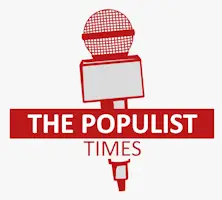At a glance:
• National Rally wins 33.15% in first round of French parliamentary elections
• Macron’s Ensemble alliance slumps to third place with 20.76% of the vote
• Second round on July 7 crucial for determining final seat distribution
• Opponents scramble to form alliances to block potential National Rally majority
France faces political turmoil following the first round of its snap parliamentary elections on Sunday, June 30, 2024. Marine Le Pen’s National Rally party emerged as the frontrunner, securing 33.15% of the vote and positioning itself for a potential parliamentary majority.

Unexpected Surge Reshapes Political Landscape
The election results have sent shockwaves through the French political establishment. President Emmanuel Macron’s Ensemble alliance suffered a significant setback, finishing third with just 20.76% of the vote. The left-wing New Popular Front coalition came in second with 27.99%.
Reports suggest the National Rally could win between 230 and 280 seats in the 577-seat National Assembly after the second round of voting on July 7. This outcome would mark a dramatic increase from their current 88 seats and potentially give them control of the legislature.
Macron’s Gamble Backfires
Macron’s decision to call snap elections after his party’s poor performance in European Parliament elections appears to have backfired spectacularly. The deeply unpopular president now faces the prospect of a hung parliament or even a government led by his political opponents.
Jordan Bardella, the 28-year-old leader of the National Rally, reportedly told supporters that the upcoming second round would be “one of the most decisive in the entire history of the Fifth Republic.” The party has campaigned on promises to boost consumer spending power, reduce immigration, and take a tougher stance on European Union rules.
Opponents Scramble to Block National Rally
News sources indicate that left-wing and centrist parties are now frantically negotiating to form alliances aimed at preventing the National Rally from securing a majority. This strategy has been used in the past to keep the party out of power.
Jean-Luc Melenchon, leader of the left-wing France Unbowed party, reportedly called for “not one more vote, not one more seat for the National Rally.” Meanwhile, Macron’s allies have urged voters to block Le Pen’s party while also warning against supporting Melenchon’s more radical left-wing agenda.
The outcome of the July 7 vote could have far-reaching implications for France’s domestic and foreign policy. A National Rally-led government might seek to roll back Macron’s pension reforms, cut taxes, and potentially alter France’s stance on issues like support for Ukraine.
As France braces for a week of intense political maneuvering, the future direction of one of Europe’s most influential nations hangs in the balance.



